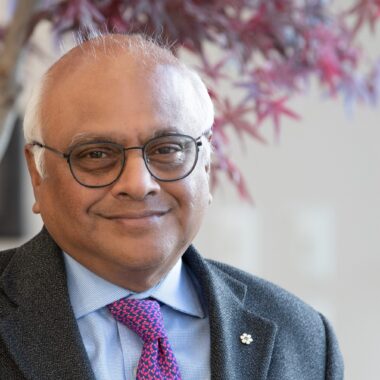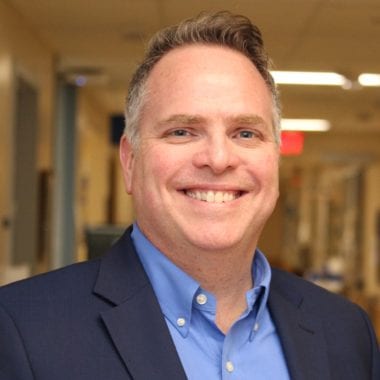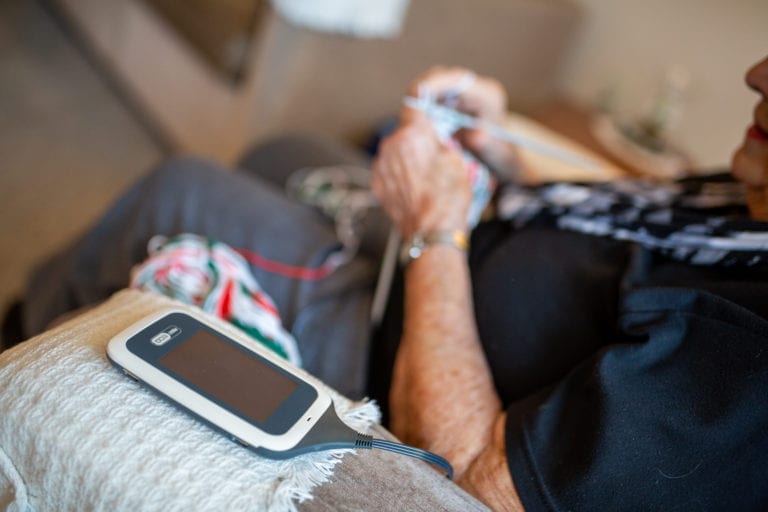KT & Health Systems
"The best care for patients is the main goal of our research... how to put evidence-based medicine into practice in homes and communities around the world" - JD Schwalm
- Homepage
- >
- KT & Health Systems
High-impact research in knowledge translation (KT) and health systems has emerged from PHRI, such as the WHO Hearts Implementation Package adopting the non-physician health worker training curriculum from our HOPE-4 and ISLAND studies. We’ve also improved medication/cardiac rehab adherence post-MI, and optimized the use of angiography in our region.
PHRI is developing interventions to improve the use of low-cost, effective treatments globally, working with 30 communities and six academic institutions in Colombia, Malaysia, the UK and Canada.
We collaborate with Knowledge Translation Canada, and with the Centre for Evidence Based Implementation (CEBI) in Hamilton.


Salim Yusuf
Founder and Emeritus Executive Director, Senior Scientist
Salim Yusuf is an internationally renowned cardiologist and epidemiologist, whose work over 40 years has substantially influenced prevention and treatment of cardiovascular disease. Medically qualified from St John’s Medical College in Bangalore in 1976, he received a Rhodes Scholar-ship and obtained a DPhil from Oxford, during which he (along with Richard Peto, Rory Collins and Peter Sleight) initiated the concepts of large, simple trials, and meta-analysis. He coordinated the first ISIS trial (which established the structure for future international collaborative work in cardiovascular and several other diseases) that demonstrated the value of beta-blockers in myo-cardial infarction, and was a member of steering committees for all subsequent ISIS trials.
In 1984, following clinical training in medicine and cardiology in the UK, he moved to the National Institutes of Health, Bethesda, USA, where he led the SOLVD trial (establishing the value of ACE-inhibitors on LV dysfunction) and DIG trial (clarifying the role of digitalis).
In 1992 he moved to McMaster University as head of cardiology, where he established an inter-national program of research in cardiovascular diseases and prevention, culminating in the creation of the Population Health Research Institute. His therapeutic trials have established the roles of ACE-inhibitors in CVD prevention, dual antiplatelet therapies in acute coronary syndromes, novel antithrombotic therapies, and most recently the value of the polypill in substantially pre-venting heart attacks and strokes globally, and at low cost. The Polypill was recently included by the WHO in its Essential Medicines List.
His epidemiologic work in over 80 countries involving all inhabited continents of the world shows the majority of risks of both heart attacks and strokes are attributable to a few risk factors. He currently leads the PURE study exploring the role of societal and environmental factors in CVD. This study (PURE) involves 200,000 people from over 800 communities in 27 high, middle and low-income countries.
He has built capacity for clinical and population research across Canada and the world by establishing research networks involving over 1500 sites in 102 countries. He has trained over 100 researchers, many of whom are now nationally or internationally renowned leaders in medical research. He has helped develop major research institutes or programs in Canada, India, Argentina, Brazil, S. Africa, Saudi Arabia, Malaysia, and China.
He holds a Heart and Stroke Foundation of Ontario Research Chair, was a Senior Scientist of the Canadian Institutes of Health Research (1999-2004), and has received (among over 100) the Lifetime Research Achievement award of the Canadian Cardiovascular Society and the World Heart Federation, the Paul Wood Silver Medal of the British Cardiac Society, the European So-ciety of Cardiology gold medal, the American Heart Association Clinical Research Award, the Killam Prize, and the Canada Gairdner Wightman Award in 2014. He has been inducted into the Royal Society of Canada, been appointed an Officer in the Order of Canada, and has been in-ducted into the Canadian Medical Hall of Fame in 2014. In 2023 he was elected as an Honorary Fellow of St. John’s College, Oxford. He has been conferred 4 honorary doctorates.
He has published over 1400 articles, and was the second most cited researcher in the world for 2011, and has been among the highest cited scientists in the world (his H index is currently 17th of all scientists in history) for over a decade. He is Past President of the World Heart Federation, where he initiated the Emerging Leaders program (now named after him) to build capacity for research in all continents of the world, with the aim of halving the CVD burden globally within a generation. This program has already trained over 250 individuals from 50 countries.


Jeff Healey
Senior Scientist
Jeff Healey is a Cardiologist/Electrophysiologist and Professor of Medicine at McMaster University. He is Yusuf Chair and Director of Cardiology at McMaster University. He is the chair of the Canadian Stroke Prevention and Intervention Network (CSPIN) and past chair of the Canadian Atrial Fibrillation guidelines committee. He is also on the steering committee of the international AF Screen organization.
Healey was the lead author of the ASSERT trial that demonstrated the increased stroke risk associated with sub-clinical atrial fibrillation (New England Journal of Medicine 2012), and the principal investigator of the ARTESIA trial, which demonstrated that anticoagulation with apixaban reduced the risk of stroke in patients with sub-clinical atrial fibrillation New England Journal of Medicine 2023). He is also the principal investigator of the LAAOS-4 trial, evaluating the role of left atrial appendage occlusion on top of NOAC therapy for prevention of stroke in high-risk individuals with atrial fibrillation.


JD Schwalm
Scientist
JD Schwalm is a Scientist in the Knowledge Translation and Health Systems research program at PHRI, an Associate Professor, Department of Medicine at McMaster University, and an Interventional Cardiologist at Hamilton Health Sciences (HHS) and Niagara Health. Schwalm is also the site lead for Cardiology at the Hamilton General Hospital and the Director of the Centre for Evidence-Based Implementation (www.hhsCEBI.ca), HHS.
Schwalm completed medical school, Internal Medicine residency, and Cardiology and Interventional Cardiology fellowship training at McMaster University, Ontario. He also did further Interventional Training and a Master of Science in Epidemiology, with an interest in Knowledge Translation at the University of Ottawa. He is a fellow of the Royal College of Physicians and Surgeons of Canada, with certification in Internal Medicine and Cardiology.
His research, supported by CIHR, The Ministry of Health (Ontario), HAHSO, WHO, and WHF, focuses on Knowledge Translation/Implementation Sciences as it relates to the field of cardiology at the patient, physician, and health system level. Schwalm has authored more than 95 peer-reviewed publications, including high-impact journals (i.e. The Lancet and BMJ).


Michael McGillion
Scientist
Michael McGillion is Associate Professor, and Assistant Dean, Research, at the School of Nursing, McMaster University. He is the Heart and Stroke Foundation/Michael G. DeGroote Endowed Chair in Cardiovascular Nursing Research, and the International Visiting Professor of Digital Health, at Coventry University in the UK.
He is an internationally-recognized researcher in the area of persistent forms of cardiac pain such as refractory angina and unrelieved chest pain following successful revascularization procedures. He was Chair of the Joint Canadian Cardiovascular Society – Canadian Pain Society guidelines for the management of refractory angina, funded by the Canadian Institutes of Health Research (CIHR). He is Principal Investigator of the largest CIHR-funded, international prospective cohort study to examine social and psychological predictors of chronic post-surgical pain following cardiac surgery. His research focuses on remote automated monitoring and virtual recovery support for people recovering from cardiac and vascular surgery, decision support for people living with RFA, and global-scale, web-based dissemination of new evidence on persistent forms of cardiac pain.
Mike has been recognized for his research and advocacy by receiving the Canadian Pain Society Early Career Award and the McMaster University Arch Award for outstanding contributions to society; and was the first University Scholar (2019) from the McMaster School of Nursing.


Harriette Van Spall
Senior Scientist
Harriette Van Spall is currently an Associate Professor in the Division of Cardiology, Department of Medicine, at McMaster University. She also serves as a Cardiologist at Hamilton Health Sciences and is a Scientist at the Population Health Research Institute and the Research Institute of St. Joe’s, Hamilton. Additionally, she is an Associate Member of the Department of Health Research Methods, Evidence, and Impact. Van Spall obtained her Bachelor of Science and Doctor of Medicine degrees and completed postgraduate training at the University of Toronto. She then earned a Master of Public Health degree from the Harvard School of Public Health. As a fellow of the Royal College of Physicians and Surgeons of Canada, she holds certifications in Internal Medicine, Cardiology, and Level III Echocardiography, with appointments in both the Department of Medicine and the Department of Health Research Methods, Evidence, and Impact at McMaster University.
Van Spall is a full-time cardiologist with a clinical focus on Heart Failure, Echocardiography, and Acute Care Cardiology. She is a data scientist and clinical trialist with expertise in heart failure, health research methods, and implementation science. Van Spall leads both industry-sponsored and investigator-initiated phase III trials and is well known for her work in health and research equity. She is a primary research supervisor and mentor to several medical trainees, graduate students, and postgraduate fellows.
Van Spall has published more than 220 manuscripts, with a significant proportion appearing in high-impact medical journals, including JAMA, Lancet, Annals of Internal Medicine, Circulation, JACC, and European Heart Journal. She has received several prestigious research awards, including the Canadian Institutes of Health Research-Institute of Circulatory and Respiratory Health Mid-Career Lectureship Award in Cardiovascular Sciences and the American Heart Association Dr. Nanette K. Wenger Research Goes Red Award. Van Spall has secured over $6.0 million in peer-reviewed funding from the Canadian Institutes of Health Research (CIHR), the Heart and Stroke Foundation of Canada, and other funding agencies. She is an invited speaker at international cardiovascular conferences, a media correspondent, and an editorial board member for leading journals. Additionally, she is a chair or member of several international research networks, trial executive committees, and guideline committees.


Madhu Natarajan
Investigator
Madhu Natarajan is an interventional cardiologist and Principal Investigator for the Coronary Interventional Health Delivery and Knowledge Translational and Implementation programs at PHRI. He is a Professor at McMaster University, Director of Catheterization Laboratories at Hamilton Health Sciences, and Site Director for Cardiology at Hamilton General Hospital.
He has published more than 85 articles, is Chair of the STEMI-EMS Committee, Cardiac Care Network of Ontario, member of the Royal College Cardiology National Examination Board, and program lead for Regional STEMI network in LHIN-4 Ontario.


Tej Sheth
Scientist
Tej Sheth is a Scientist with the Perioperative and Surgery research program at PHRI, as well as a Principal Investigator in atherosclerosis imaging, an Associate Professor in the Department of Medicine at McMaster University, and a interventional cardiologist at Hamilton Health Sciences. His research interests include invasive and non-invasive coronary imaging modalities, including coronary angiography, optical coherence tomography, and CT coronary angiography. He is Director of the CT Angiographic Core Lab for the COMPASS CABG study and the COMPLETE trial at PHRI.


Jackie Bosch
Scientist
Jackie Bosch is the Assistant Dean of the McMaster Occupational Therapy Program and a PHRI Scientist. She has a Bachelor’s degree in Occupational Therapy, a Master’s degree in Clinical Epidemiology and Biostatistics, and a PhD in Rehabilitation Science. She also serves as a Professor in the School of Rehabilitation and has an Adjunct Appointment with the University of Galway College of Medicine, Nursing, and Health Sciences.
Her research focuses on improving functional outcomes in clinical trials, particularly for stroke survivors in low-resource settings, and enhancing clinical trial methods. Bosch has taken on leadership roles in large-scale trials such as HOPE, HOPE-TOO, HOPE-3 (NCT00468923), DREAM (NCT00095654), ORIGIN (NCT00069784), TIPS-3 (NCT01646437), and COMPASS (NCT01776424). She leads the Organized Stroke Care Across Income Levels (OSCAIL) group, which has conducted a proof-of-concept study implementing key aspects of stroke unit care in hospitals within low-resource settings. Currently, the OSCAIL group is working on a community-based study aimed at improving outcomes for stroke survivors in these challenging environments. Bosch is also interested in optimizing how clinical trials are conducted, especially by finding new ways to make the start-up and execution processes more efficient.
Jackie Bosch has published 184 articles and received several awards, including the Lorna Reimer Award for Leadership from the Canadian Occupational Therapy Foundation in 2019 and the Faculty of Health Sciences, McMaster University, Programs Award for Graduate Students in 2014.


Ted Scott
Associate Collaborator
Ted Scott is Chief Innovation Officer, and Acting Vice-President, Research, Hamilton Health Sciences. He is Chair of the Synapse Life Sciences Consortium in Hamilton, and was previously Chief Innovation Officer and Dean of Applied Research at Mohawk College, where he studied Radiography and Sonography.
He is an expert digital health strategist and has a wealth of experience in industry relations and procurement, as well as innovation policy. He returned to HHS where he started his career as a sonographer after working at The Hospital for Sick Children and Huntsville District Memorial Hospital. Ted is a lifelong learner who earned his Masters of Applied Science in Medical Ultrasound and his PhD in Diagnostic Imaging from Charles Sturt University of Australia.


Tim O’Shea
Associate Investigator
Tim O’Shea is an Associate Professor, Department of Medicine (divisions of general internal medicine and infectious diseases), McMaster University. He has travelled and worked extensively in East Africa in both general internal medicine and infectious diseases. His academic interests include medical education and the care of marginalized populations such as people affected by poverty, homelessness and addiction.
He has been involved in implementing a Global Health curriculum for the McMaster University Internal Medicine Residency Program. Tim completed his medical degree at McMaster University and a Masters of Public Health at Harvard University. He trained in internal medicine, infectious diseases and medical microbiology at McMaster, and is Royal College certified in each of these disciplines.


Jeremy Petch
Associate Investigator
Jeremy Petch is Director, Digital Health Innovation, Hamilton Health Sciences (HHS), where his team employs machine learning to data streaming from continuous remote monitoring devices to develop improved early-warning systems for patients recovering from surgery. They are also developing a range of patient and clinician-facing applications in the areas of virtual care and improving clinical workflow.
He is an Assistant Professor at the University of Toronto’s Institute of Health Policy, Management and Evaluation, and has a PhD in Philosophy (Health Policy Ethics) from York University.


Tara McCready
Program Director
Tara McCready, PhD, oversees a variety of collaborative programs at PHRI, and serves as Project Manager for PHRI research studies and registries.
She was recruited to PHRI as a Program Director for the Canadian Network and Centre for Trials Internationally (CANNeCTIN), a national network funded by the CIHR/CFI Clinical Research Initiative program to improve the prevention and treatment of cardiac and vascular diseases and diabetes.
Previously the Executive Director of the Canadian Maternal, Infant, Child and Youth Research Network, Tara holds a PhD in Biochemistry and a MBA in Technology Commercialization from the University of Alberta.


Jennifer Cunningham
Project Manager
Jennifer Cunningham has more than 20 years’ experience working in research at PHRI. Starting with a few months assisting in research accounting in the then CCC Project Office in 1998, she began her PHRI career with study teams in 2000. Since then, Jennifer has had many roles at PHRI, from data management to her current role in project management; and has worked on and managed multiple studies, from large international cardiovascular, national gastrointestinal, to policy changes and vulnerable/marginalized people studies within our own local community.
completed
MIPAD
KT & Health Systems
The overarching goal of the MIPAD study was to reduce the morbidity and mortality of...
completed
PACT-HF
Arrhythmia & Heart Failure
The goal of the PACT-HF study was for all patients hospitalized with heart failure (HF),...
completed
Redirect TAVI
Arrhythmia & Heart Failure
Transcatheter Aortic Valve Replacement (TAVR) is a minimally invasive procedure for high-risk patients with aortic...
completed
SMART AMI – LHIN 4 STEMI Registry
KT & Health Systems
The objective of the SMART AMI – LHIN 4 STEMI Registry was to enhance the...




